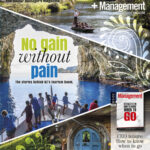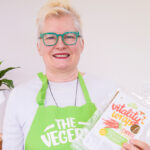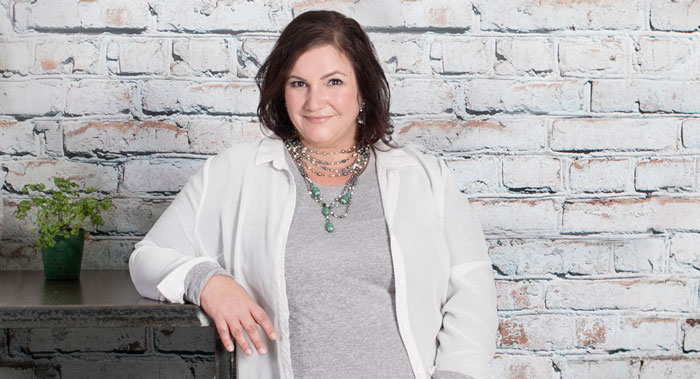Berry legends
John and Sue Gibb are pioneers of New Zealand’s frozen berryfruit industry. Thirty-two…
John and Sue Gibb are pioneers of New Zealand’s frozen berryfruit industry. Thirty-two years after starting their Stoke-based business the couple are taking their Sujon brand to new heights.
When John and Sue Gibb first met in Dunedin in the 1970s the possum fur trade was booming and John had a thriving possum fur buyer-exporter business.
Unfortunately ‘bust’ often follows ‘boom’ and when the trade crashed they upped sticks and moved to Hope, on the outskirts of Nelson – purchasing a plot of land and planting boysenberries, blackberries, kiwifruit and raspberries.
The long term plan was to establish a kiwifruit orchard, but after harvesting their first berry crop they decided berries had more flavour and potential.
So berries became the primary focus.
Initially demand was strong. They sold berry-ingredients to juice, jam and ice cream manufacturers. But an oversupply of international berries eventually saw ingredient prices plummet.
John and Sue decided it was time to create their own future; they began taking samples of berries around supermarkets. Surprisingly all but one said there was no demand for berries, and so with just 3Guys Discount as a customer they started their retail business.
John attended a meeting about branding and marketing, funded by apple growers. He realised brands were the way to go. He told Sue “all we need is a brand; we can do that” and Sujon (a combination of Sue and John) was born.
Starting with boysenberries the company quickly expanded into blueberries and raspberries. Blueberries at the time were relatively unknown and research was only just beginning. The words ‘super-fruit’, ‘superfood’ and “’nutraceuticals’ had yet to be invented, recalls John.
One day he came home with 400 kilos of frozen blueberries on his ute.
Sue said “what the hell are we going to do with those”?
The year was 1984. The Sujon frozen berryfruit business was born.
Consistent growth
The milestones came consistently for Sujon.
In 1987 the frozen fruit retail market was launched via 3Guys. Exports of frozen berries and foodservice berries began in 1995, with the Pacific Islands the first destination. That was followed three years later by the first shipment to Japan.
PM Helen Clark opened Sujon’s new Bullen Street facility in 2007. The state-of-the art fluidised bed freezer was the first such machine in the Southern Hemisphere. The technology is almost as good as cryogenic freezing – capable of a 50-degree temperature drop in just six minutes, and processing three tonne per hour.
“The machine was installed in partnership with the New Zealand Blackcurrant Cooperative, says John. “We already knew from some of our research projects that the phytochemicals responsible for both flavour and bio-functionality were retained in the frozen fruit with this advanced freezing technology.”
By 2008 the investment was paying for itself – processing 2,300 tonne of IQF (Individually Quick Frozen) berryfruit in one year.
Even the Government took notice – providing a market development grant of $100K for three years. Those three years saw Sujon berry powder launched domestically and offshore; and then, in 2016 came another game-changer – Bob Major was appointed chairman of the Sujon board, and John Molyneux appointed CEO.
Sue explains the reasoning behind the appointments: “Because we were pioneers in both processing and marketing we didn’t have the handicap of previous successes [marketing and financial] that trapped us into a proven set of actions and directions.
“So we explored the silly and the serious equally.” The result is a list of amazing potential projects. “Many of these projects got to the stage where some serious culling was necessary simply to prioritise our focus and resource allocation. So the family agreed it was time to bring in people with complementary and different skill-sets.
“Our new chair and CEO bring a truly exciting new dimension to our board meetings and their enthusiasm has rejuvenated our own passion for our company.”
Best practice
Of course, business growth is never without its challenges, and Sujon has experienced many unique to the industry.
Soft berryfruits are vulnerable to damage at every stage of the growing, processing, packaging and sales continuum. “We’ve pioneered most of the steps in that continuum in this country,” says John. “We’re recognised as creating world best practice within the international frozen berryfruit industry.”
Now Sujon’s berryfruit powders are set to impact the markets. “One university research professor we’re creating a bespoke frozen berryfruit powder product for, has said that Sujon blackcurrant powder will change both consumer expectations and farming practices globally,” says Sue.
The biggest challenge for John and Sue was overcoming the prejudice that fresh was better than frozen. “We’ve proven that mantra isn’t true if the processing is done right,” says John. “And we do it as well, if not better than, anyone else.”
John recalls his grandson explaining Sujon blackcurrant powder to his 11-year-old friend – why it’s so good for sports stars and why some world champions use it secretly.
“The friend turned to me and asked ‘but do you make any money out of it?’.
“I laughed and thought, if I’d had that level of business-savvy before I even started work where would I be now? Probably not a frozen fruit entrepreneur with all its associated challenges!
“But Sue and I have seen berries go from underdog to food star: a culinary Cinderella that’s now the star of the ball.”
Good employer
Meanwhile, the couple are proud to support their local community. Their goal is to be a good employer and a reliable buyer for local suppliers.
“We pay above minimum wage and have 23 full-time staff plus a national network of contractors for sales and marketing,” says Sue.
Sujon is a sponsor of the Nelson Giants basketball team. Many team members, including Tall Blacks champion Mika Vukona, credit Sujon’s blackcurrant powder with keeping them at maximum fitness. The product is a key part of their training fitness dietary regime.
As for business advice, John says always “go with your passion but add equal amounts of pragmatism.
“Always, always, surround yourself with people who are your equal or better than you in some ways.”
In 2017 the couple still live on their Hope berryfruit farm and enjoy going to their factory every day.
“It’s a daily reminder of what we are selling to the world,” explains Sue. “New Zealand food at its natural best, made accessible through modern technology to global consumers.”



